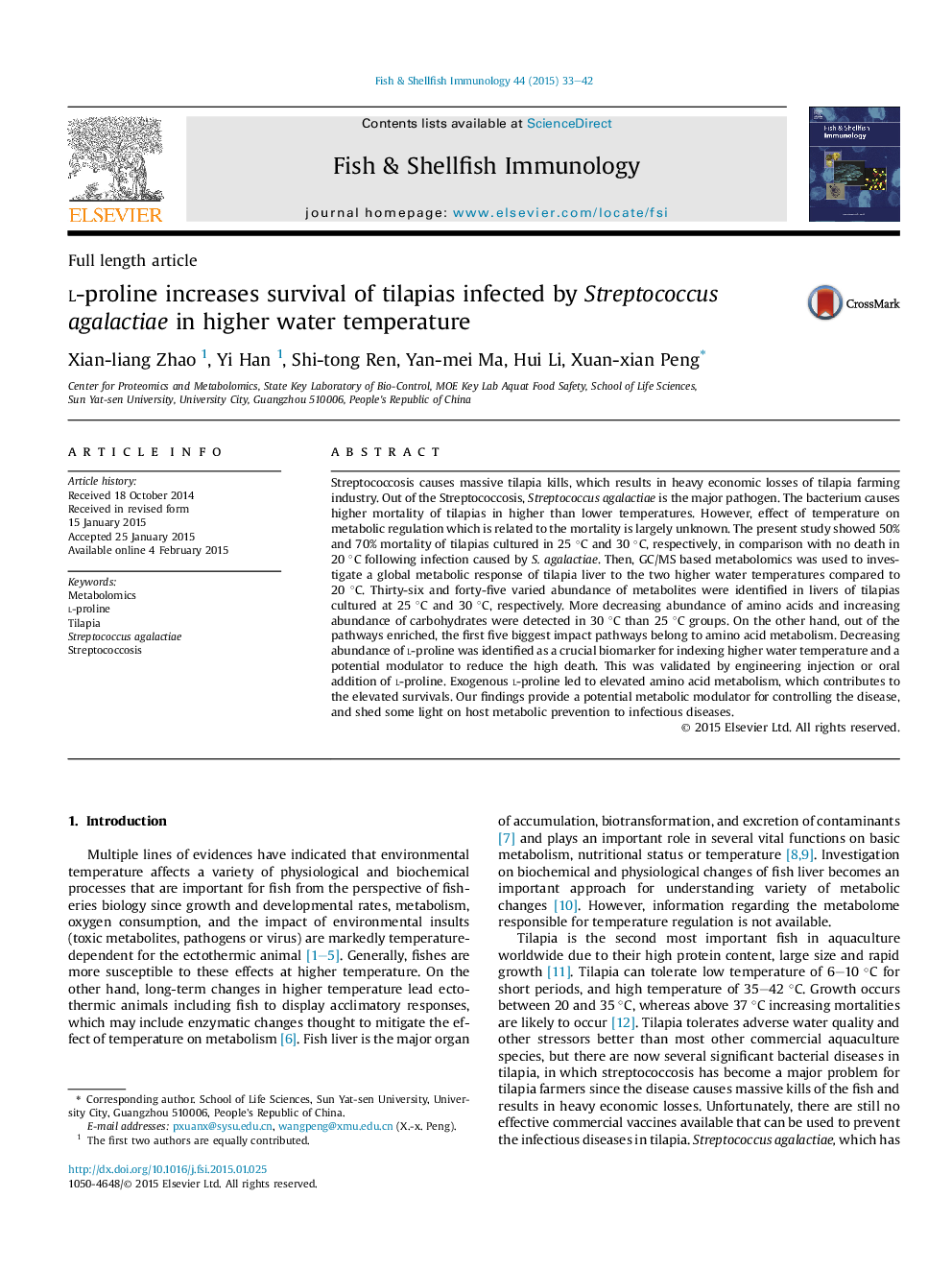| کد مقاله | کد نشریه | سال انتشار | مقاله انگلیسی | نسخه تمام متن |
|---|---|---|---|---|
| 2431256 | 1106750 | 2015 | 10 صفحه PDF | دانلود رایگان |

• Higher water temperature increases the mortality caused by S. agalactiae infection.
• GC–MS based metabolomics to different water temperatures was characterized.
• Decreasing abundance of l-proline was identified as a crucial biomarker.
• Exogenous l-proline may elevate survivals of tilapias in higher water temperature.
Streptococcosis causes massive tilapia kills, which results in heavy economic losses of tilapia farming industry. Out of the Streptococcosis, Streptococcus agalactiae is the major pathogen. The bacterium causes higher mortality of tilapias in higher than lower temperatures. However, effect of temperature on metabolic regulation which is related to the mortality is largely unknown. The present study showed 50% and 70% mortality of tilapias cultured in 25 °C and 30 °C, respectively, in comparison with no death in 20 °C following infection caused by S. agalactiae. Then, GC/MS based metabolomics was used to investigate a global metabolic response of tilapia liver to the two higher water temperatures compared to 20 °C. Thirty-six and forty-five varied abundance of metabolites were identified in livers of tilapias cultured at 25 °C and 30 °C, respectively. More decreasing abundance of amino acids and increasing abundance of carbohydrates were detected in 30 °C than 25 °C groups. On the other hand, out of the pathways enriched, the first five biggest impact pathways belong to amino acid metabolism. Decreasing abundance of l-proline was identified as a crucial biomarker for indexing higher water temperature and a potential modulator to reduce the high death. This was validated by engineering injection or oral addition of l-proline. Exogenous l-proline led to elevated amino acid metabolism, which contributes to the elevated survivals. Our findings provide a potential metabolic modulator for controlling the disease, and shed some light on host metabolic prevention to infectious diseases.
Figure optionsDownload as PowerPoint slide
Journal: Fish & Shellfish Immunology - Volume 44, Issue 1, May 2015, Pages 33–42